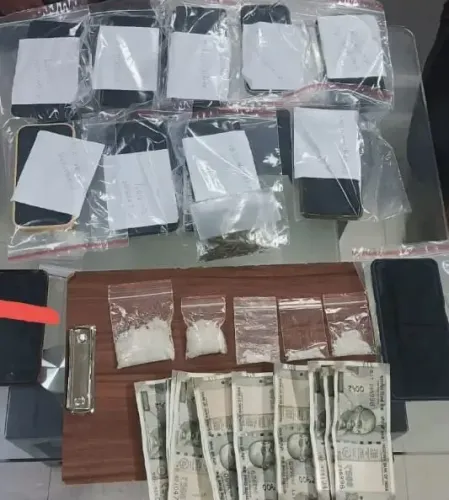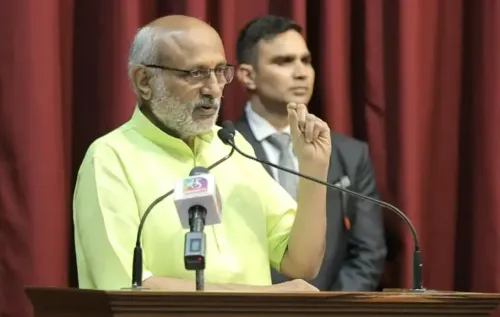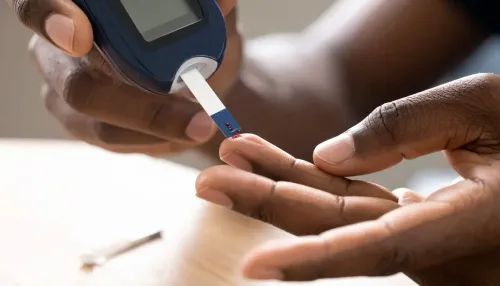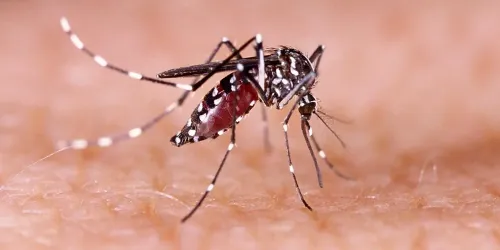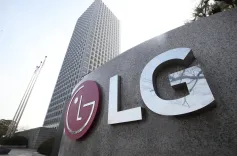How has the Poshan Maah initiative significantly advanced India’s fight against malnutrition?

Synopsis
Key Takeaways
- Poshan Maah is a significant initiative targeting malnutrition in India.
- It promotes community involvement and sustainable nutritional practices.
- The initiative aligns with the government’s vision for a healthier nation.
- Focus on early childhood nutrition is pivotal for improving long-term health outcomes.
- Active participation from all community members is essential for success.
New Delhi, Sep 19 (NationPress) The Poshan Maah initiative, part of the Poshan Abhiyaan, has made remarkable strides in India’s battle against malnutrition, according to the Union government.
Initiated in March 2018 by Prime Minister Narendra Modi in Jhunjhunu, Rajasthan, Poshan Abhiyaan is a flagship mission involving multiple ministries aimed at prioritizing nutrition in India’s national development agenda.
The Poshan Maah program has been pivotal in fostering a healthier and more resilient nation through improved nutrition, particularly in reducing stunting rates among children.
The National Family Health Survey (NFHS-5, 2019-21) indicates a decline in stunting among children under five from 38.4% to 35.5%. Furthermore, the prevalence of underweight children has decreased from 35.8% to 32.1%.
The government remarked, “The Poshan Maah initiative, a fundamental aspect of the Poshan Abhiyaan, has greatly enhanced India’s efforts against malnutrition through the promotion of dietary diversity, community involvement, and technology-oriented solutions.”
“Poshan Maah empowers local communities and educational institutions to cultivate sustainable nutritional practices, leading to a healthier and stronger nation,” they added.
On Wednesday, PM Modi inaugurated the 8th Rashtriya Poshan Maah, in conjunction with the Swasth Nari Sashakt Parivar Abhiyan, strongly aligning with his vision of Sashakt Nari and Suposhit Bharat.
This year's campaign emphasizes innovative and inclusive strategies to combat malnutrition and enhance public health. It seeks to raise awareness regarding obesity by advocating for reduced sugar and oil consumption to foster a healthier India.
“Obesity is becoming a significant issue for our country. In the near future, one in three individuals may fall victim to it. We must take action to prevent obesity. I suggest using 10% less oil while cooking,” PM Modi stated during his Independence Day address in August.
The Poshan Maah will emphasize early childhood care and education (ECCE) and the Poshan Bhi Padhai Bhi (PBPB) initiative.
Additionally, through the EK Ped Maa Ke Naam campaign, it seeks to merge environmental sustainability with nutritional awareness, promoting tree planting and eco-friendly habits for long-term health and wellness.
The initiative also aims to improve feeding practices for children under two years of age to enhance nutrition outcomes, focusing on optimal breastfeeding and complementary feeding. Moreover, it will encourage active male involvement in nutrition awareness and caregiving roles to promote shared responsibility in family and community health.
Poshan Maah is a nationwide drive to foster nutrition and healthy living, where everyone has a crucial role in its success by educating the community, establishing nutrition gardens, supporting Anganwadi Centres, and volunteering at local Anganwadi centres.

